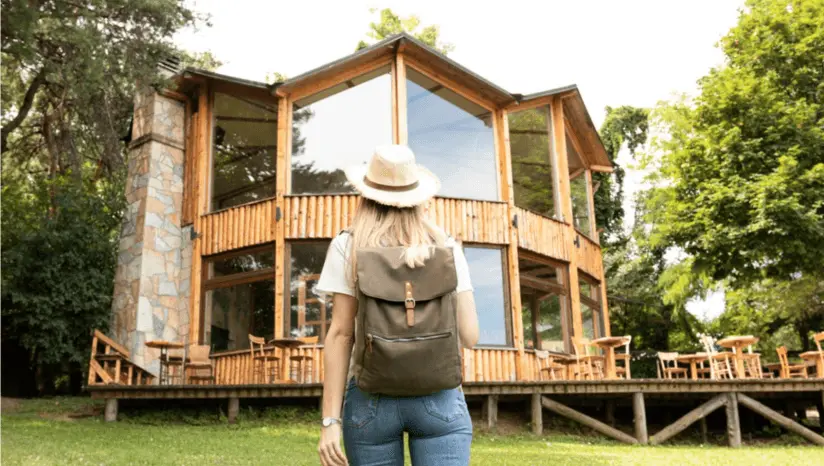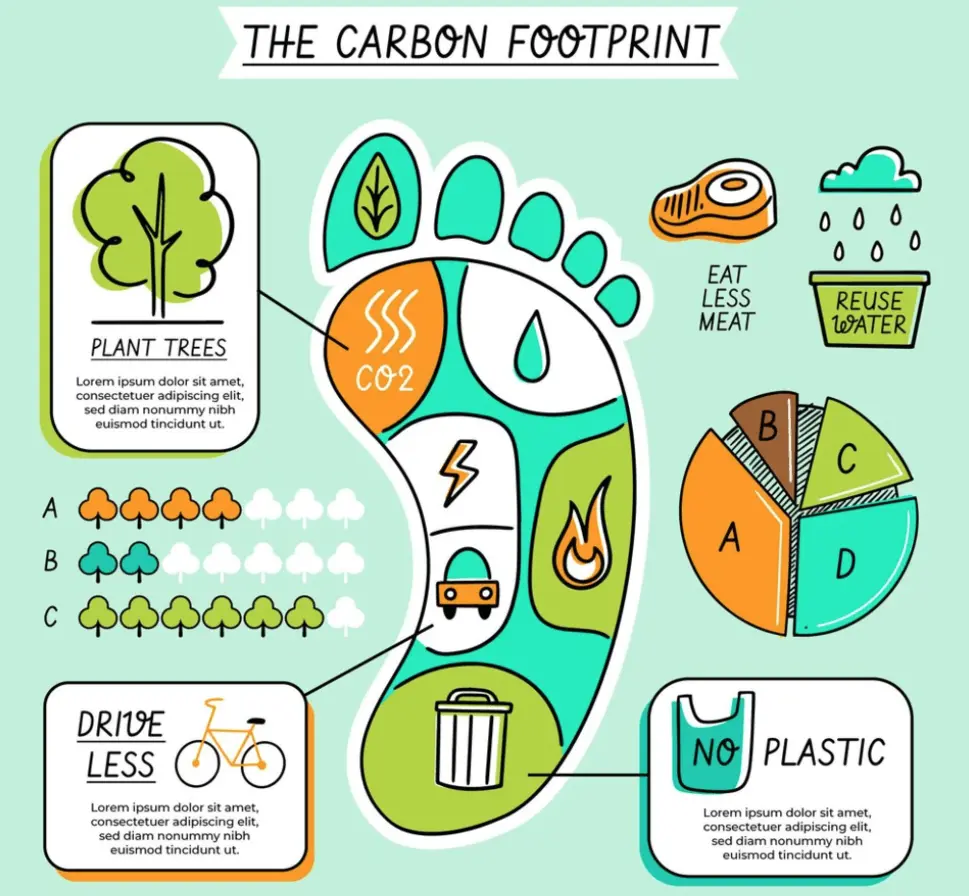Beneath the allure of wanderlust lies a deeper responsibility—one that resonates with the heartbeat of our planet. Welcome to the realm of Sustainable Travel, an ethos that transcends mere exploration, championing a symbiotic relationship between voyagers and the world they traverse.
As we navigate the tapestry of cultures, terrains, and experiences, embracing sustainable travel isn’t just a choice; it’s an essential commitment towards preserving the wonders we cherish. Join this transformative journey, where each footstep treads lightly, leaving behind a positive impact, nurturing destinations, and fostering a legacy of mindful exploration.
Table of Contents
ToggleUnderstanding Sustainable Travel
Sustainable Travel embodies a mindful approach to exploration, transcending the mere act of visiting new places. It’s a philosophy that intertwines with responsible choices, aiming to preserve the beauty of destinations while fostering a harmonious relationship between travelers and the world they traverse.
At its core, Sustainable Travel revolves around making conscious decisions that minimize negative impacts on the environment, respect local cultures, and contribute positively to communities. It’s about embracing a style of exploration that nurtures destinations, leaving behind footprints of appreciation rather than exploitation. From reducing waste to supporting local economies and conserving resources, every choice made under the umbrella of sustainable travel holds the potential for a profound and lasting impact.
Benefits of Sustainable Travel for the Environment
The allure of travel meets the essence of responsibility in Sustainable Travel. By adopting eco-conscious practices, travellers become guardians of the environment, safeguarding delicate ecosystems and preserving biodiversity. This conscientious approach involves choices such as opting for eco-friendly accommodations, supporting conservation efforts, and minimizing carbon footprints through sustainable transportation options.
Beyond the environmental sphere, Sustainable Travel is a catalyst for positive change within local communities. It fosters economic growth by supporting local businesses, creating employment opportunities, and preserving cultural heritage. This mode of exploration ensures that the benefits of tourism reach those who call these destinations home, contributing to the social and economic development of communities worldwide.

Principles of Sustainable Travel
Sustainable travel operates on foundational principles that guide responsible exploration, fostering positive impacts on the environment and local communities.
Reduce, Reuse, Recycle: Practical Tips
The mantra of sustainability, “Reduce, Reuse, Recycle,” resonates profoundly within the realm of travel. Here are practical tips for travellers seeking to embody this principle:
Minimize Single-Use Plastics: Carry a reusable water bottle, tote bag, and utensils to reduce reliance on disposable items.
Pack Wisely: Opt for multi-purpose clothing and reusable containers for toiletries to minimize waste generation during travels.
Mindful Consumption: When purchasing souvenirs or goods, prioritize products with minimal packaging and those crafted from sustainable materials.
Proper Waste Disposal: Dispose of waste responsibly, following local recycling and waste management guidelines.
By consciously implementing these practices, travellers contribute to reducing their environmental footprint while fostering a culture of sustainability.
Supporting Local Economies and Communities
One of the pillars of sustainable travel is the direct support of local economies and communities:
Choose Locally-Owned Businesses: Opt for locally-owned accommodations, restaurants, and tour operators to ensure that your spending benefits the community directly.
Engage with Local Culture: Embrace cultural experiences, interact with locals respectfully, and learn about traditional customs, thereby contributing to the preservation of heritage.
Invest in Local Artisans: Purchase souvenirs directly from local artisans and craftsmen, supporting their livelihoods and promoting the continuation of traditional artistry.
Through these actions, travelers become integral contributors to the economic prosperity and cultural preservation of the destinations they visit.
Minimizing Carbon Footprint: Transport and Accommodation
Reducing the carbon footprint associated with travel involves mindful choices in transportation and accommodation:
Opt for Eco-Friendly Transportation: Choose trains, buses, or carpooling over flights whenever feasible. Additionally, explore opportunities for walking or cycling within destinations to reduce emissions.
Choose Sustainable Accommodations: Seek accommodations committed to sustainable practices, such as energy efficiency, waste reduction, and conservation initiatives. Look for eco-lodges, green hotels, or homestays that prioritize environmental responsibility.
By selecting transportation and accommodations aligned with eco-friendly practices, travelers significantly minimize their environmental impact while contributing positively to sustainable tourism initiatives.
Embracing these principles empowers travelers to make conscientious decisions, nurturing destinations for generations to come while fostering positive and lasting impacts on both the environment and local communities.

Choosing Eco-Friendly Accommodation
When it comes to sustainable travel, the choice of accommodation plays a pivotal role in reducing your environmental impact and supporting eco-conscious initiatives.
Types of Eco-Friendly Accommodations
Eco-Lodges: These accommodations are typically nestled within natural surroundings, constructed using locally-sourced materials and designed to have minimal impact on the environment. They often integrate renewable energy sources and adopt eco-friendly practices.
Green Hotels: These are traditional hotels that have implemented various sustainability measures. They focus on energy efficiency, waste reduction, water conservation, and often engage in community support initiatives.
Criteria for Identifying Eco-Friendly Places to Stay
When seeking eco-friendly accommodations, consider the following criteria:
Certifications and Recognition: Look for certifications such as LEED (Leadership in Energy and Environmental Design), Green Globe, or other recognized eco-certifications that indicate a commitment to sustainability.
Energy and Resource Conservation: Check if the accommodation implements practices like energy-efficient lighting, water-saving fixtures, and waste reduction measures. Inquire about their recycling programs and efforts to minimize environmental impact.
Local Community Engagement: Assess how the accommodation contributes to the local community. Do they employ locals, support local artisans, or engage in community projects? These factors indicate a commitment to local empowerment and sustainability.
Nature Preservation: Consider how the accommodation interacts with its natural surroundings. Are there efforts to preserve local ecosystems, biodiversity, or support conservation initiatives?
Transparency and Information: Reputable eco-friendly accommodations readily provide information about their sustainability initiatives. They’re transparent about their practices, allowing guests to make informed choices.
By choosing accommodations aligned with eco-friendly practices, travelers actively contribute to the promotion of sustainable tourism while enjoying a more environmentally conscious and fulfilling travel experience.

Responsible Tourism Practices
Responsible tourism is not just about where you stay; it encompasses how you interact with the local environment, culture, and communities.
Cultural Sensitivity and Respect
Educate Yourself: Before traveling to a new destination, take the time to learn about local customs, traditions, and cultural norms. Understanding and respecting these cultural differences enrich your travel experience and show respect for the local community.
Respect Dress Codes: In many cultures, specific dress codes are essential. Dress modestly, especially when visiting religious sites or rural areas, to avoid inadvertently causing offense.
Wildlife and Nature Conservation: Dos and Don’ts
Observe Wildlife Ethically: While encountering wildlife can be exhilarating, ensure it’s done responsibly. Avoid activities that exploit animals or disrupt their natural behavior. Choose reputable wildlife tours that prioritize observation from a respectful distance.
Preserve Natural Habitats: Whether hiking, snorkeling, or exploring natural sites, leave them as you found them. Respect protected areas and follow designated trails to prevent damage to delicate ecosystems.
Engaging with Local Communities in Respect
Interact Mindfully: Engage with locals respectfully and authentically. Learn a few phrases in the local language and be open to connecting with people, but always ask permission before taking photos of individuals or their homes.
Support Local Initiatives: Seek ways to contribute positively to the community you’re visiting. This could involve volunteering with local projects, supporting local artisans, or donating to reputable community initiatives.
By embracing responsible tourism practices, travelers not only ensure a more enriching and authentic travel experience but also play a crucial role in preserving cultures, protecting wildlife, and fostering positive relationships with the communities they visit.

Packing for Sustainable Travel
The choices made while packing for a trip can significantly impact the sustainability of your journey.
Eco-Friendly Packing Tips
Reusable Essentials: Prioritize reusable items such as water bottles, utensils, tote bags, and containers for toiletries. Opt for durable, multi-purpose items to minimize waste generated during your travels.
Minimalist Approach: Pack only what you need. A minimalist approach not only lightens your load but also reduces the resources used in manufacturing and transporting your belongings.
Choose Sustainable Materials: Look for clothing and travel accessories made from sustainable materials like organic cotton, hemp, bamboo, or recycled materials. These materials tend to have a lower environmental impact compared to conventional ones.
Sustainable Travel Gear and Accessories
Research and Invest: Before purchasing travel gear, research brands that prioritize sustainability in their production processes. Look for companies committed to using eco-friendly materials and ethical manufacturing practices.
Quality Over Quantity: Invest in durable, high-quality gear that will last longer and withstand multiple trips. Quality items reduce the need for frequent replacements, ultimately reducing waste.
Versatile and Multi-Use Items: Choose versatile travel gear and accessories that serve multiple purposes. For example, a multifunctional scarf can double up as a blanket or a pillow during travels, reducing the need for additional items.
By implementing eco-friendly packing practices and choosing sustainable travel gear and accessories, travellers contribute to reducing waste, conserving resources, and supporting environmentally conscious manufacturing practices, thus fostering a more sustainable approach to exploration.

Transportation and Sustainable Travel
The mode of transportation chosen during travel significantly impacts the ecological footprint of the journey.
Minimizing Air Travel and Opting for Greener Alternatives
Choose Direct Flights: When air travel is necessary, opt for direct flights whenever possible. Takeoffs and landings contribute significantly to a flight’s carbon footprint, so fewer stops mean lower emissions.
Consider Alternative Transport: Explore alternative modes of travel such as trains, buses, or carpooling for shorter distances or within regions where feasible. These options often have lower emissions per passenger compared to individual car travel.
Offset Carbon Emissions: Consider offsetting your carbon footprint by investing in reputable carbon offset programs. These initiatives fund projects that reduce greenhouse gas emissions, effectively balancing out the carbon footprint of your travel.
Using Public Transportation, Biking, or Walking
Utilize Public Transit: Embrace the local way of getting around by using buses, trains, or subways. Not only does this reduce emissions, but it also offers a more immersive cultural experience.
Biking or Walking: Explore destinations on foot or by bike whenever feasible. It not only reduces emissions but allows for a closer connection with the surroundings, providing opportunities for unique experiences off the beaten path.
By minimizing air travel, opting for greener alternatives, and embracing public transportation, biking, or walking, travellers contribute significantly to reducing their environmental impact. These choices not only promote sustainability but also offer a more enriching and immersive travel experience.

Eating and Dining Sustainably
Embracing sustainable eating practices while travelling not only supports local communities but also reduces the environmental impact of your culinary choices.
Supporting Local, Sustainable Food Sources
Farmers’ Markets and Local Produce: Explore farmers’ markets or local food markets to savour fresh, locally-produced fruits, vegetables, and other food items. This supports local farmers and reduces the carbon footprint associated with transporting food long distances.
Choose Sustainable Restaurants: Opt for eateries that prioritize locally sourced ingredients and sustainable practices. Look for restaurants that emphasize reducing food waste, support fair trade, or use organic produce.
Support Community Meals: Embrace the opportunity to dine with locals through community meals or homestays. This not only offers an authentic culinary experience but directly contributes to local economies.
Reducing Food Waste While Traveling
Mindful Portions: Practice ordering or serving reasonable portions to reduce food waste. If unsure about portion sizes, start conservatively and order more if needed.
Carry Reusable Containers: Bring reusable containers for leftovers when dining out. This reduces the need for disposable takeaway containers and minimizes food waste.
Support Food Donation Programs: If you find yourself with excess food that might go to waste, inquire about local food donation programs. Some places facilitate donating leftover food to those in need.
By supporting local, sustainable food sources and minimizing food waste, travellers not only indulge in diverse culinary experiences but also contribute to the preservation of local food cultures and the reduction of environmental impact associated with food production and waste.

Activities and Excursions
Selecting responsible activities and tour operators is integral to practising sustainable travel and promoting eco-friendly adventures.
Choosing Responsible Tour Operators and Activities
Research and Inquire: Before booking excursions or activities, research tour operators that prioritize sustainability. Look for those committed to minimizing environmental impact and supporting local communities.
Check Certifications or Memberships: Seek tour operators that hold certifications or memberships reflecting their commitment to responsible tourism, such as eco-tourism certifications or memberships in sustainable tourism associations.
Ask Questions: Inquire about the tour’s environmental policies, their engagement with local communities, and how they contribute to conservation efforts. Responsible operators are transparent about their practices and eager to share their initiatives.
Participating in Eco-Friendly Adventures and Experiences
Nature-based Activities: Opt for eco-friendly adventures that focus on appreciating and preserving natural environments. Activities such as hiking, bird watching, snorkelling, or wildlife safaris conducted in an environmentally sensitive manner promote conservation.
Cultural Immersion: Engage in cultural experiences that prioritize authenticity and respect for traditions. Attend local cultural events, workshops, or guided tours led by knowledgeable locals to gain insights into local customs and traditions.
Support Conservation Efforts: Choose excursions that directly contribute to conservation initiatives, such as volunteering for beach clean-ups, tree planting activities, or wildlife conservation projects.
By consciously choosing responsible tour operators and participating in eco-friendly adventures and experiences, travellers not only enrich their journeys but also contribute positively to local communities, conservation efforts, and the overall sustainability of tourism destinations.

Measuring Your Impact
Measuring and offsetting your carbon footprint and contributing positively to destinations are essential aspects of responsible and sustainable travel.
Tools and Resources for Calculating
Carbon Calculators: Utilize online carbon footprint calculators that estimate your emissions based on travel, accommodation, and lifestyle choices. These tools help in understanding the impact of your activities.
Offsetting Programs: Engage with reputable carbon offset programs that fund initiatives reducing carbon emissions, such as reforestation projects, renewable energy initiatives, or community-based sustainability programs. These programs enable travellers to balance out their unavoidable emissions.
Support Renewable Energy Projects: Contribute to renewable energy projects directly or indirectly. Look for initiatives that invest in solar, wind, or hydroelectric power in the regions you visit.
Ways to Contribute Positively to the Places You Visit
Responsible Spending: Prioritize spending on locally-made products and services, directly supporting the local economy. This sustains livelihoods and empowers communities.
Volunteering and Community Engagement: Explore volunteering opportunities or community-based projects that allow you to give back to the communities you visit. This could involve teaching, conservation work, or supporting local initiatives.
Respect Cultural Heritage: Treat cultural sites, artefacts, and traditions with respect. Follow guidelines, pay entrance fees where applicable, and avoid activities that may damage or disrespect heritage sites.
By utilizing tools to measure and offset their carbon footprint and actively contributing positively to the places they visit, travellers not only mitigate their environmental impact but also leave a meaningful and lasting impression on the destinations they explore, fostering a more sustainable and responsible approach to travel.
Finally, Sustainable Travel isn’t just a trend; it’s a transformational ethos that harmonizes wanderlust with responsibility, leaving an indelible mark on both travellers and the destinations they explore.
As passionate voyagers, we hold the power to shape the future of travel. Every decision, from accommodation choices to daily activities, becomes an opportunity to make a positive impact. Embracing eco-friendly packing, supporting local economies, choosing responsible tour operators, and measuring and offsetting our carbon footprint are steps that collectively pave the way for a more sustainable travel landscape.
Let us embark on a journey where exploration intertwines with responsibility—a journey where every footstep echoes a commitment to preserving the wonders of our world. Together, let’s champion Sustainable Travel, leaving behind footprints of appreciation, respect, and stewardship.
As we venture forth, may our travels not only fulfil our wanderlust but also leave a legacy of mindful exploration, nurturing destinations for generations to come.
If you’re seeking captivating content on Traveling, explore this section for more engaging information. [CLICK]




